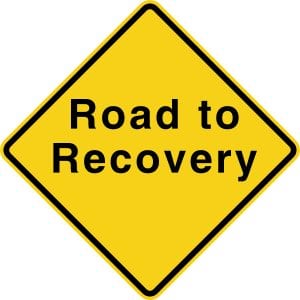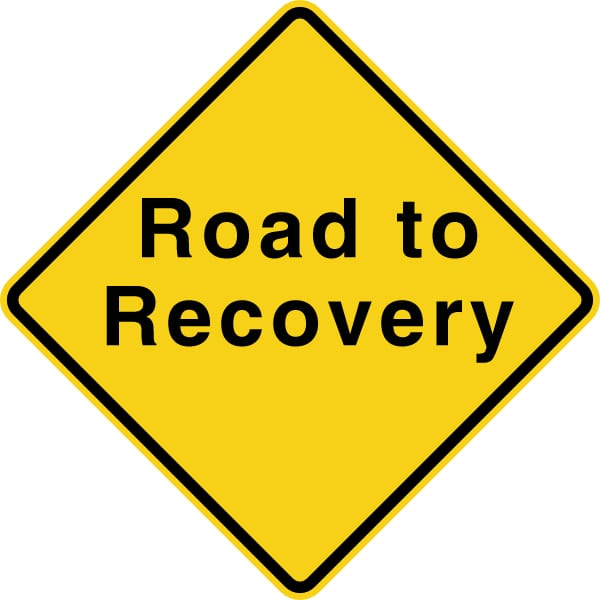
For many people, schizophrenia and other serious mental health conditions entail a lifetime of treatment and management. Should we as family members, providers, and caregivers encourage people with such persistent mental health conditions to believe in the hope of recovery?
My answer is yes. But we must be careful to explain what we mean by this often used, but frequently misunderstood word “recovery.”
Yale Professor Larry Davidson, Director of the Program for Recovery & Community Health, describes the two senses in which the term recovery is used in mental health:
- Recovery from a mental illness – an end result of “showing no observable signs or symptoms of mental illness and no residual impairments from the disorder between 2 and 32 years after onset.”
- Being in recovery with a mental illness – a process of minimalizing the illness and its harmful effects while the person affected learns to “live with and manage an illness that may be with him or her for… the remainder of his or her life.”
Scientific studies have consistently shown that about one-quarter of those diagnosed with a serious mental illness such as schizophrenia will experience a complete remission of symptoms with no observable impairment and no continued need for treatment over the long term. These people can be said to have recovered from mental illness in the clinical sense of the term recovery.
However, the majority of people diagnosed with a serious mental illness will experience no such remission of symptoms and may search for ways of living with and managing their illness for the rest of their lives. Those who embrace this path of living positively with their illness are engaged in a process of being in recovery.
Larry Davidson’s description of recovery-oriented mental health care contains the important notion of people with serious mental illness “establishing, reestablishing, or reclaiming a meaningful life in the community in the presence of enduring disability.” When we speak of “resources to recover” on this website, we are using the word recovery in both of its senses:
- rapid short-term resources that are offered “just in time” to help people recover from mental illness
- and longer-term resources and supports for people living with persistent mental illness to engage in an ongoing process of recovery
At the outset, it may not be apparent which path to recovery you or your loved one has started on. But whichever path it is, the journey always begins with hope – the belief that recovery is real and that people can and do overcome the challenges of mental illness to have a better life.
Larry Davidson and his colleagues have written the standard text on recovery for mental health professionals, A Practical Guide to Recovery-Oriented Practice: Tools for Transforming Mental Health Care. This book is more of a blueprint for transforming mental health systems, than a step-by-step guide for families or mental health providers. I add it to the list of RtoR Recommended Reading because of the message of recovery and hope it brings not just to families and individuals, but across entire systems of mental health care.
To purchase the book, go here:
A Practical Guide to Recovery-Oriented Practice: Tools for Transforming Mental Health Care
- Silver Hill Hospital: My Family’s 35-Year History with a National Leader in Quality Mental Health Care - February 7, 2023
- Connecticut Mother Who Lost a Son to Overdose Shares Her Story and Hosts Wilton Fundraiser to Benefit Laurel House - November 9, 2022
- Laurel House Offers $10,000 Racial Equity Scholarship for a Black or Hispanic Student Pursuing a Master’s of Social Work Degree - June 8, 2022




About 15 or more years ago I talked with Dr Thomas McGlashan , director of Yale Psychiatric Institute who informed me that they had, underway, a long-term study of adolescents who manifested symptoms of mental illness — the study was to determne if early intervention with medication would ward off the onset of more serious illlnesses later on (20's) Do you know if any findings from that study have been published?
Thank you for your question.
Initial results of the study were published here… “Validity of the Prodromal Risk Syndrome for First Psychosis: Findings from the North American Prodrome Longitudinal Study.”
On the strength of these results, a new diagnosis of Prodromal Risk Syndrome was proposed for the recent fifth edition of the Diagnostic and Statistical Manual of Mental Disorders (DSM V). This proved to be hugely controversial, as it was thought in some quarters that such a diagnosis might lead to unnecessary treatment and stigmatization of children, adolescents and young adults who might never develop actual symptoms of schizophrenia.
Here’s a link to a prior blog post on “Environmental Triggers and Early Intervention for Schizophrenia,” which provides more information on prodromal symptoms and why such a diagnosis might be helpful. One of our readers posted a comment about the Yale clinic for Specialized Treatment Early in Psychosis (STEP), where the research occurs, and I intend to visit the STEP Clinic soon to find out more about the study and the work they do with young people at risk for schizophrenia.
I have a friend here who is asking about signs of approaching mental illness in children…1. does this vary by type of illness? 2. at what age might a parent expect to see the beginning signs? 3. what sort of activity or behavior would lead a parent to contact a professional? 4. where would they start their search in any given locale? thanks